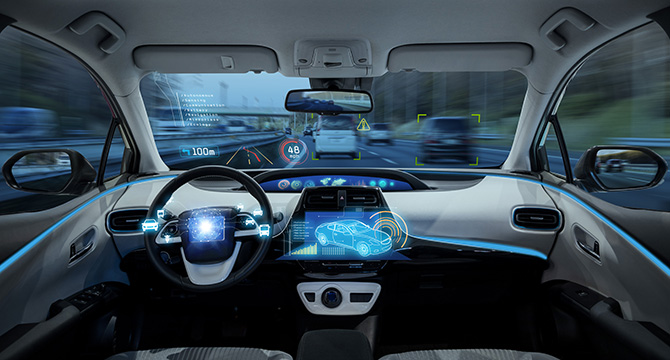Self-Driving Cars Spurred by Convergence of Traditional Manufacturers and Tech Companies, Foley Survey Finds

The race to self-driving cars has created new challenges and opportunities for companies, particularly automotive original equipment manufacturers that are facing competition from non-traditional sources in the technology industry.
We at Foley wanted to take the pulse of the automotive and technology industries in the midst of the policy debate taking place in Washington – which is finally advancing in the form of legislation – as well as the groundbreaking innovation occurring in connected cars and autonomous vehicles. We surveyed a range of executives at leading automakers, suppliers, startups, investment firms and technology companies. Needless to say, there is both fierce competition and new collaborations among those vying to build a truly connected car, and ultimately the first completely autonomous vehicle.
Here are some of the key findings that emerged from our research:
- With the more mature connected car technologies, respondents are most concerned about cybersecurity and privacy issues, whereas safety and consumer readiness to adopt topped the list of perceived barriers for autonomous vehicles.
- There’s a growing acceptance of new entrants in the automotive space, particularly startups and established technology companies. Only 15% of respondents do not believe startups and the technology they’re developing are disrupting traditional automotive supply chains.
- Respondents anticipate substantial changes to the automotive sales process over the next five years, with 77 percent expecting automakers to increasingly bundle connected services and/or autonomous features at the point of sale.
- Silicon Valley and Detroit were identified as market leaders in the development of connected cars and autonomous vehicles, reflecting the critical role they’ll each play in conjunction with other innovation centers around the world.
- The legislation moving through Congress is a welcome development to industry executives seeking greater regulatory certainty. The majority of respondents (62 percent) believe that nationally consistent rules from the federal government are the best way to regulate connected cars and autonomous vehicles.
- In developing these technologies, the most pressing legal issues for respondents were identified as cybersecurity attacks (63 percent), intellectual property protection (58 percent) and personal injury and property liability (55 percent).

